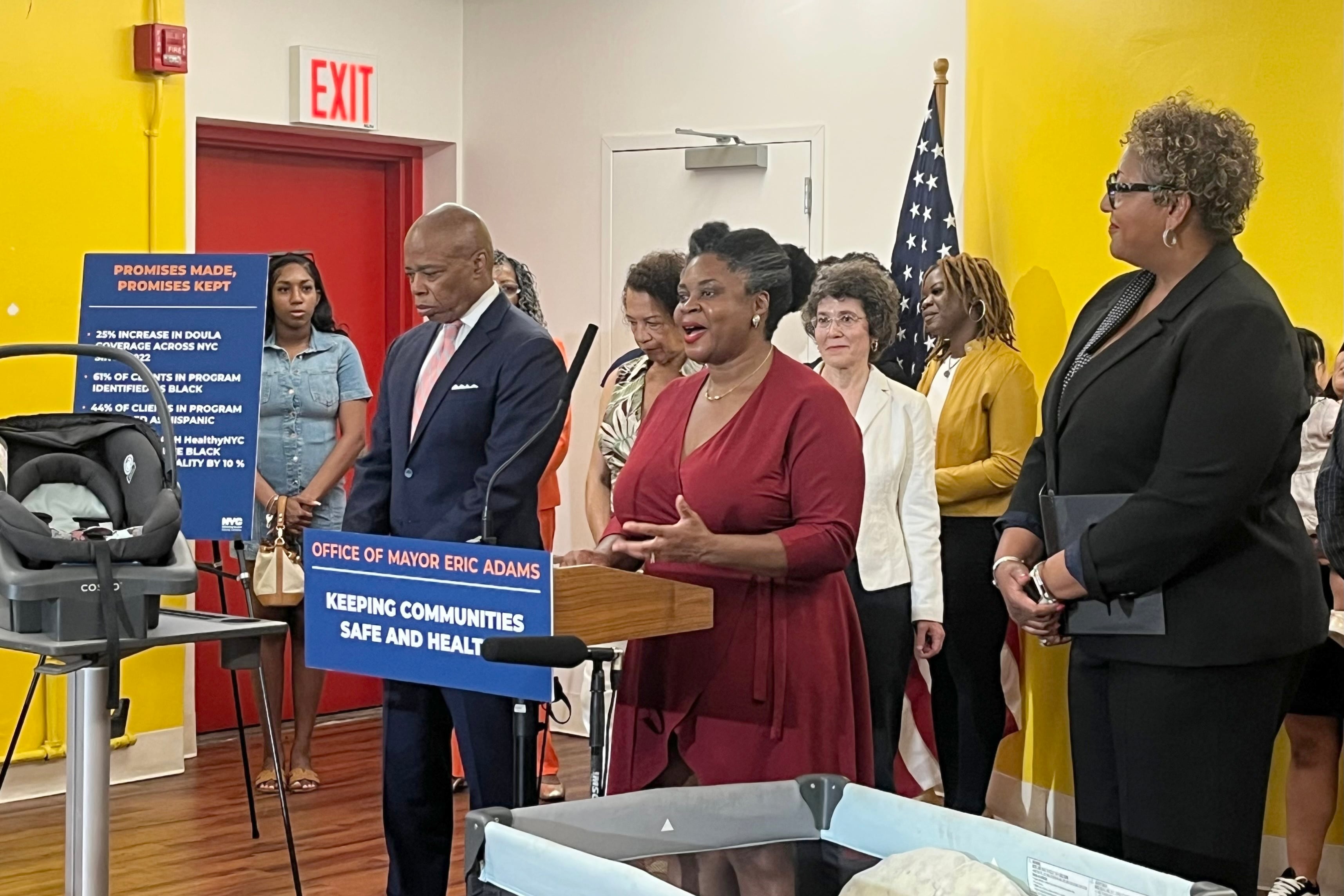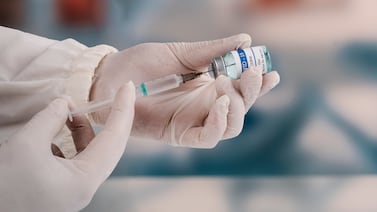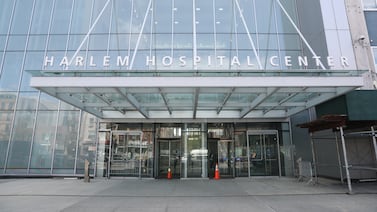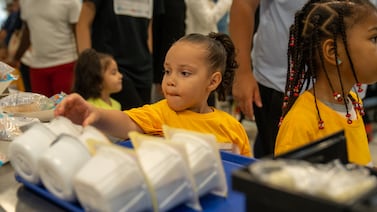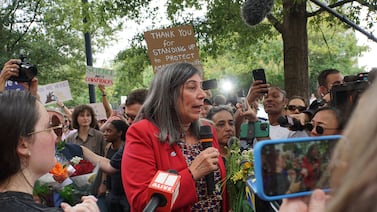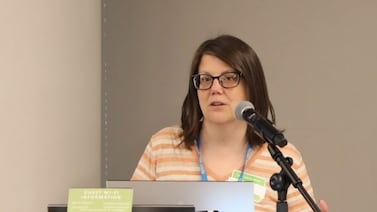Public health, explained: Sign up to receive Healthbeat’s free New York City newsletter here.
A New York City initiative to expand access to doulas in underserved neighborhoods has made progress in its early years, though inequities persist across the city, a new report shows.
On Monday, city leaders touted the achievements of the Citywide Doula Initiative, which launched in 2022. The program works with community-based organizations to provide free support during pregnancy, childbirth and the postpartum period to residents of marginalized communities, as well as to those who live in homeless shelters and foster homes.
Over the last three years, the program has served 3,245 clients and has reported no deaths among its participants, city leaders said. Last year, doulas from Citywide Doula Initiative supported 884 births, accounting for almost half of all doula-attended births in communities identified by the city as marginalized, according to the new report from the Department of Health and Mental Hygiene.
“Our doula program is working,” Mayor Eric Adams said during a press conference at the East Harlem Neighborhood Health Action Center.
In recent years, reducing pregnancy-associated deaths has been a key priority for city leaders. In New York City, maternal mortality rates are significantly higher for Black people; Black women are four times more likely than white women to die from pregnancy-associated causes. As part of its HealthyNYC initiative, which aims to increase New Yorkers’ life expectancy, the city is targeting a 10% reduction in maternal death rates by 2030.
“No one should die bringing life into the world,” said Dr. Michelle Morse, the Health Department’s acting commissioner. “Every child deserves to celebrate their birthday. Every parent should have a childbirth free of trauma.”
Data on nearly all New York City births last year show that the proportion of residents who had doula support during birth rose from 4.9% in 2022 to 6.1% in 2024 — a 25% increase, though reflecting a small proportion of New York City births —according to the Health Department report.
Theresa Lasbrey Peters, a doula affiliated with the Northern Manhattan Perinatal Partnership, has helped about 75 women navigate birth through the Citywide Doula Initiative.
“Doulas make a difference,” she said at the press conference. “We listen, advocate, and hold space. We help people find victory, even in moments of fear and uncertainty.”
Still, inequities in access to doula care through the city persist, the report shows. Between 2022 and 2024, doula coverage increased in most boroughs, rising particularly in Brooklyn and Manhattan, though remaining stagnant on Staten Island. In Brooklyn, 8.6% of births received doula support in 2022, rising to 10.1% in 2024; in Staten Island, that same figure was 2.1% in 2022 and 2.0% in 2024.
While the vast majority of clients served through the Citywide Doula Initiative are Black or Hispanic, disparities in access also endure among New Yorkers more broadly. Last year, white New Yorkers had disproportionately high rates of doula support during pregnancy — accounting for 34% of overall births, but 60% of births with doula support — while Hispanic and Asian New Yorkers were underrepresented among births with doula support.
Questions about the impact of significant Medicaid cuts included in the Republican megabill, which President Donald Trump signed into law last week, hung over Monday’s press conference about the doula program. The New York state Medicaid program began covering doula support starting last year, and Medicaid covers 60% of births in New York City.
“We know doula services are just a piece of a safety net,” said Suzanne Miles-Gustave, the city’s deputy mayor for health and human services. “We need to ensure everyone has a safe pregnancy, and the means they need to raise a family. Access to healthy food and all forms of preventive and emergency care are also critical.”
Adams expressed disappointment in the legislation, and said that his administration was in the process of analyzing its local impacts. Pressed by reporters, he said that he was committed to seeing the doula initiative succeed.
“We’re not going to end this program,” he said. “This is one of the vital entities for me.”
Eliza Fawcett is a reporter covering public health in New York City for Healthbeat. Contact Eliza at efawcett@healthbeat.org .

